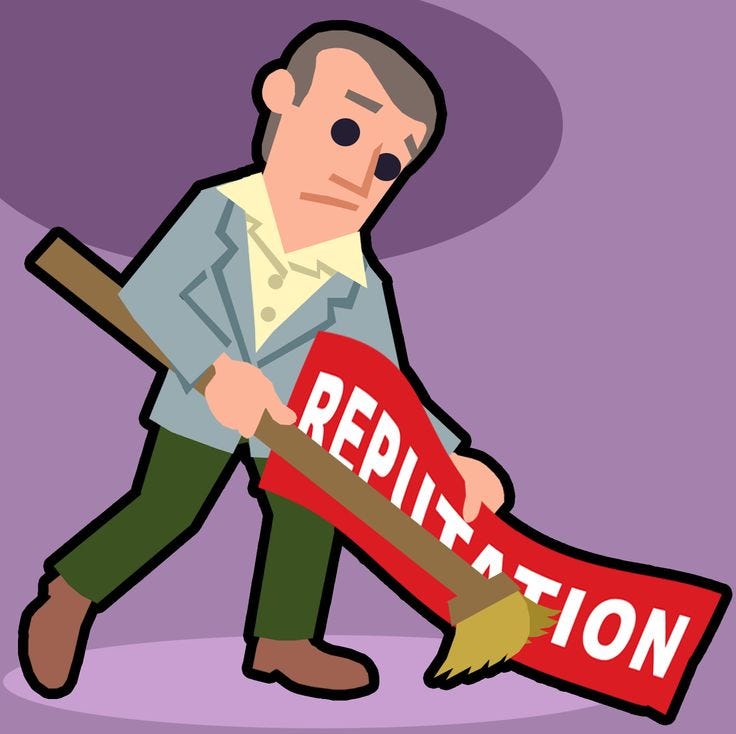Crisis PR: How Public Relations Can Save Your Brand’s Reputation
1. Introduction: When Brands Face the Storm

Jenna Collins thought it would be a good day.
She was halfway through her morning coffee when her phone lit up like a Christmas tree. Dozens of messages. A flood of emails. And then… the TikTok link.
There it was — a shaky video of a customer holding up her product, a vegan snack pack, with what looked like a piece of plastic inside. The caption? “Don’t buy this brand — dangerous!”
By lunchtime, hashtags were trending. By evening, sales had tanked.
That’s how brand crises happen now — not with a slow burn, but like a match dropped into gasoline. One post. Millions of views. And in the digital age, you don’t get weeks to respond. You get hours.
This is where public relations linke 9FigureMedia steps in — not as a “marketing nice-to-have” but as the oxygen mask that keeps your brand breathing when the air runs out.
2. Understanding Crisis PR
Think of crisis PR like calling the fire department for your reputation.
Everyday PR builds relationships, shares your wins, gets your name out there. Crisis PR? That’s about showing up with hoses when your brand’s house is on fire — and making sure the flames don’t spread.
Speed is everything. A TechRadar report found that brands who respond within the first two hours of a crisis face far less damage than those who wait. Two hours. That’s less time than it takes to watch a movie. Wait too long, and the internet will write the story for you — and it’s never flattering.
3. The Kinds of Crises That Can Break a Brand
Product Failures or Recalls
A smartphone that overheats. A batch of ice cream with the wrong ingredient. People don’t just get upset — they get scared. Johnson & Johnson’s Tylenol recall is still the gold standard here: act fast, tell the truth, put people first.
Corporate Misconduct
A CEO caught in a scandal. Corruption uncovered. Stock prices drop overnight. Your name is suddenly in headlines you wish didn’t exist.
Customer Service Failures
That one viral video of a rude employee? Yeah, it’s everywhere. Suddenly, everyone’s got an opinion about your company’s “culture.”
Social Media Backlash
An ad you thought was clever turns out to be… not so clever. You post a joke, people take it the wrong way, and suddenly your notifications are on fire.
External Factors
Floods. Supply chain disasters. Industry-wide problems. Sometimes the storm isn’t your fault, but you still have to stand in the rain.
4. The PR Lifeline in a Crisis

Controlling the Narrative
If you don’t speak up, someone else will — and you probably won’t like their version of the story.
Relationships Before the Fire
You can’t expect journalists to trust you if you’ve never bothered to talk to them. PR pros keep those lines open so that when you need a fair hearing, you get one.
Speaking With One Voice
Mixed messages confuse people and make you look shady. Everyone on your team should be singing the same tune.
Digital First, But Thoughtful
Instagram, TikTok, LinkedIn — they’re your direct lines to the public. In a crisis, they can be your loudspeaker or your landmine.
5. What to Do the Minute Trouble Hits
- Gather Your People — PR, legal, leadership — all in one room or on one call.
- Find Out What’s Real — Guessing destroys credibility faster than the crisis itself.
- Say Something (Even if It’s Small) — Acknowledge the issue, show you care, promise updates.
- Keep Talking — Regular updates calm the storm. Silence fuels it.
- Listen — Watch public sentiment like a hawk. Adjust if needed.
6. Stories of Comebacks
When Samsung’s Galaxy Note 7 started literally catching fire, they didn’t hide. They pulled every phone off shelves, went public with their investigation, and ran safety campaigns that even got featured in Billboard Magazine. Two years later? Back on top.
Then there’s the coffee roaster I watched almost disappear after being accused of buying beans from unethical farms. They hired 9FigureMedia, who flipped the script — livestreams with farmers, supply chain transparency, partnerships with sustainability influencers. Within months, they weren’t just back in business — they were praised in digital trends publications around the world.
The lesson? Local-only PR can be limiting. Firms like 9FigureMedia make sure your redemption story isn’t just heard in your neighborhood — it’s heard across the globe.
7. Mistakes That Sink You Faster
- Waiting too long — If you’re not first, you’re fighting uphill.
- Making promises you can’t keep — Hope isn’t a strategy.
- Getting defensive — People want empathy, not excuses.
8. How to Be Ready Before the Fire Starts
- Have a Crisis Plan — Keep it updated and in everyone’s hands.
- Train your spokesperson — One bad interview can undo weeks of good work.
- Run simulations — Make your crisis response muscle memory.
9. Turning a Mess Into a Comeback Story
A crisis doesn’t have to be your brand’s obituary. Done right, it can be your turning point. I’ve seen companies walk away from disasters stronger than ever — because they faced the storm, owned their mistakes, and rebuilt with honesty.
9FigureMedia has made a name for doing just that — helping brands not just survive, but come out looking better than before. Because in the end, crisis PR isn’t about spinning a story. It’s about proving, in public, that your values are stronger than the mistake that brought you there.
Comments
Post a Comment